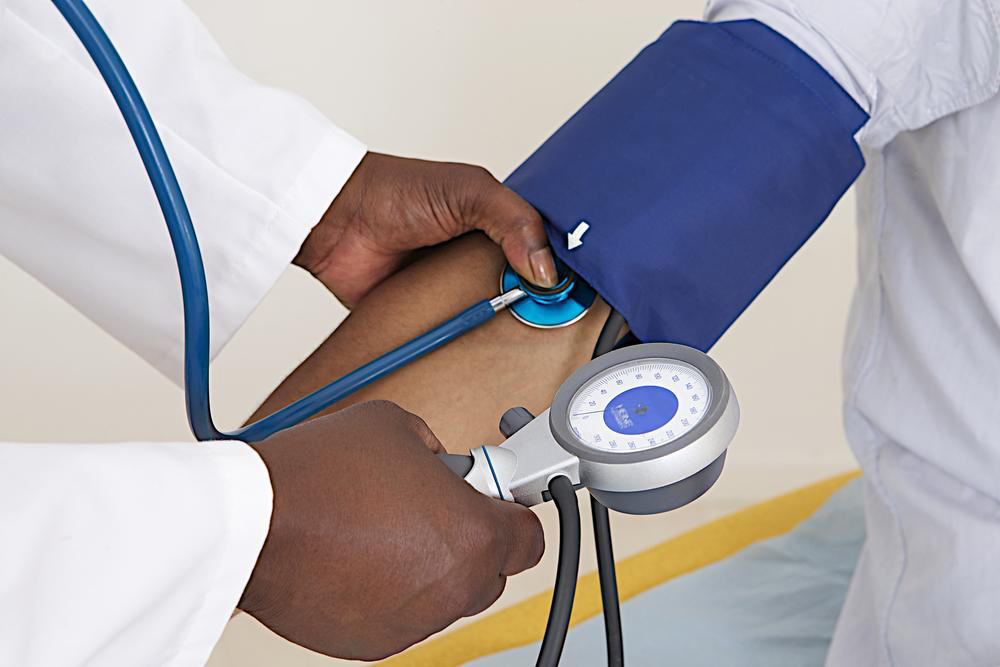Comprehensive Guide to the Top 6 Causes of Hypertension You Must Know
This comprehensive article explores the top six factors contributing to hypertension, emphasizing lifestyle choices, dietary habits, age, genetics, and other modifiable risk factors. Understanding these causes helps in effective prevention and management of high blood pressure, reducing the risk of serious health complications. Learn practical strategies to maintain healthy blood pressure levels and improve overall cardiovascular health.

Comprehensive Guide to the Top 6 Causes of Hypertension You Must Know
High blood pressure, medically known as hypertension, is a prevalent health condition that affects millions worldwide. It is characterized by elevated force of blood against the arterial walls, which over time can damage the blood vessels and organs such as the heart, kidneys, and brain. Often called the "silent killer," hypertension frequently progresses without noticeable symptoms, making early detection and prevention crucial. Recognizing the underlying factors contributing to high blood pressure is essential for adopting effective lifestyle changes and reducing the risk of severe health complications.
While a family history of hypertension can increase your susceptibility, it is important to understand that many other modifiable risk factors play significant roles. Lifestyle choices, dietary habits, age, genetics, and environmental influences all contribute to the development of high blood pressure. This comprehensive guide aims to shed light on the six most influential factors that contribute to hypertension, providing insights into prevention strategies and health management tips.
Understanding these key factors can empower individuals to take proactive steps to maintain healthy blood pressure levels and avoid the potentially devastating consequences of unmanaged hypertension.
1. Excessive Sodium Intake
One of the primary dietary contributors to hypertension is a high intake of sodium, predominantly from salt. Sodium plays a vital role in regulating blood volume and pressure, but excessive consumption can lead to water retention and increased pressure on arterial walls. Modern diets, especially those high in processed foods, fast foods, and salty snacks, are significant sources of hidden sodium. Regularly consuming foods rich in salt can cause persistent elevations in blood pressure, significantly raising the risk of developing hypertension. Reducing intake of processed foods and opting for fresh, whole foods can help manage sodium levels effectively. Reading food labels and choosing low-sodium alternatives are practical measures to prevent excessive salt consumption.
2. Age-Related Changes
Advancing age is a natural risk factor for hypertension. As individuals grow older, arterial walls tend to become stiffer and less elastic due to the accumulation of plaque and structural changes within the blood vessels. These age-related modifications impair the vessels' ability to accommodate blood flow efficiently, resulting in increased blood pressure. Additionally, lifestyle factors such as decreased physical activity, weight gain, and chronic stress often accompany aging, further elevating the risk. Statistically, older adults, especially those over 60, are more prone to developing hypertension, with early onset becoming increasingly common among middle-aged populations. Regular health screenings, cardiovascular exercises, and maintaining a healthy weight can help offset age-related risks.
3. Excess Weight and Obesity
Overweight and obesity are powerful predictors of high blood pressure. Excess body fat, especially around the abdomen, strains the heart and increases resistance within blood vessels. This added strain causes the heart to work harder to circulate blood, leading to hypertension over time. Poor dietary choices combined with sedentary lifestyles are common contributors to weight gain. Achieving and maintaining a healthy weight through balanced nutrition and regular physical activity can significantly reduce the likelihood of developing hypertension. Even modest weight loss, such as 5-10% of body weight, can lead to meaningful reductions in blood pressure, improving overall cardiovascular health.
4. Genetic Predisposition
Family history plays a notable role in the risk of hypertension. If close relatives have high blood pressure, the probability of developing the condition increases due to inherited genetic factors. Genes influence various aspects of blood pressure regulation, including salt sensitivity, vascular reactivity, and kidney function. However, genetics are not destiny; adopting healthy lifestyle habits can substantially mitigate genetic risks. Regular exercise, maintaining a low-sodium diet, controlling weight, and avoiding tobacco and excessive alcohol consumption are crucial in managing inherited predispositions. Genetic screening and early monitoring are valuable tools for individuals with a family history of hypertension.
5. Lifestyle Habits and Physical Activity
Lifestyle choices heavily influence blood pressure levels. Sedentary behavior, chronic stress, inadequate sleep, and unhealthy habits contribute significantly to hypertension. Lack of physical activity results in weaker arteries and poor cardiovascular fitness, predisposing individuals to high blood pressure. Conversely, regular physical activity, such as brisk walking, swimming, or cycling, helps improve vascular flexibility, promotes weight loss, and reduces stress hormones, all contributing to healthier blood pressure levels. Stress management techniques like meditation, deep breathing exercises, and sufficient sleep further support cardiovascular health. Developing a consistent active routine is one of the most effective ways to prevent and control hypertension.
6. Alcohol and Tobacco Consumption
Habits like excessive alcohol intake and smoking are critical risk factors for hypertension. Alcohol consumption causes temporary spikes in blood pressure, and chronic abuse can lead to sustained high levels, damaging blood vessels and the heart. Smoking introduces nicotine and other chemicals that constrict blood vessels, increase heart rate, and promote plaque buildup. Both habits accelerate the progression of hypertension-related health issues, including heart disease and stroke. Quitting smoking and moderating alcohol intake are vital steps toward lowering blood pressure. Support from healthcare professionals, behavioral interventions, and community programs can aid in cessation efforts, ultimately reducing cardiovascular risk and improving overall well-being.
In conclusion, understanding the multifaceted causes of hypertension enables individuals to adopt targeted lifestyle modifications and health strategies. Preventing high blood pressure is achievable through simple yet effective changes such as reducing salt intake, maintaining a healthy weight, exercising regularly, managing stress, and avoiding tobacco and excessive alcohol. Early detection through routine screenings, alongside a proactive approach to risk factors, can significantly diminish the long-term health impacts of hypertension and lead to a healthier, more vibrant life.





